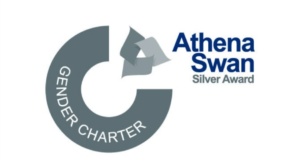Climate change researchers make 100 improvements to Wikipedia ahead of COP29

Researchers aim to make 100 improvements to climate change content on Wikipedia for the “100 Days 100 Edits” campaign in a bid to address misinformation and raise public understanding of climate change.
The campaign seeks to improve Wikipedia’s climate change content for 100 consecutive days in the lead up to COP29, ensuring that readers worldwide have access to accurate and reliable information about one of the most pressing issues of our time.
Wikipedia is read more than 15 billion times every month – equating to about 6,000 reads every second (WMF) – and is a major public source of information on climate-related topics.
However, climate change, environmental impacts, and sustainable solutions are topics frequently subject to misinformation and denialism, making accurate public resources essential for informed decision-making.
The campaign, led by the Global Systems Institute at the University of Exeter and organised by Wikimedia Fellow for Climate Tatjana Baleta, has seen researchers from 11 different institutions over the course of 100 days check facts, update data, and expand coverage of essential climate topics to address these issues and improve public knowledge gaps.
Each edit contributes to creating factual, up-to-date and accessible information that the public can rely on to counteract false narratives and better understand the science behind climate change.
The 100 edits include adding the greenhouse gas emissions of pet food production to the article ‘Pet food’, adding a list of threats (including climate change) to Benthic animals in the article ‘Benthos’, and correcting information on how climate change can affect ocean current circulation in the article ‘Ocean current’.
In recent years, Wikipedia’s model has demonstrated an unprecedented ability to debunk false claims and counteract the spread of disinformation, thanks to its community-driven editing process.
“As climate misinformation circulates globally, providing well-sourced, rigorously reviewed content on Wikipedia is essential to inform decision-making and empower citizens to act on accurate information,” said Tatjana Baleta, the campaign organiser and environmental science communicator.
“Researchers, as the holders of knowledge have an important role to play in ensuring that information is shared with the public. Wikipedia is an excellent platform through which to do it, and this was the goal of the 100 Days 100 Edits Campaign.”
Campaign participant Dr Oscar Kennedy-Blundell, from the University of Exeter, added: “Promoting widespread scientific literacy is a key issue in addressing anthropogenic climate change, environmental degradation and injustice.
“Platforms like Wikipedia provide an excellent opportunity to disseminate scientific information to an extended audience, where this information is otherwise often only accessible by academics in the global north. I hope that my contribution to the campaign can help bring greater clarity to a topic (i.e. biochar) that is often discussed in the context of climate change mitigation.”
For more information visit: https://en.wikipedia.org/wiki/Wikipedia:100_Days_100_Edits.



